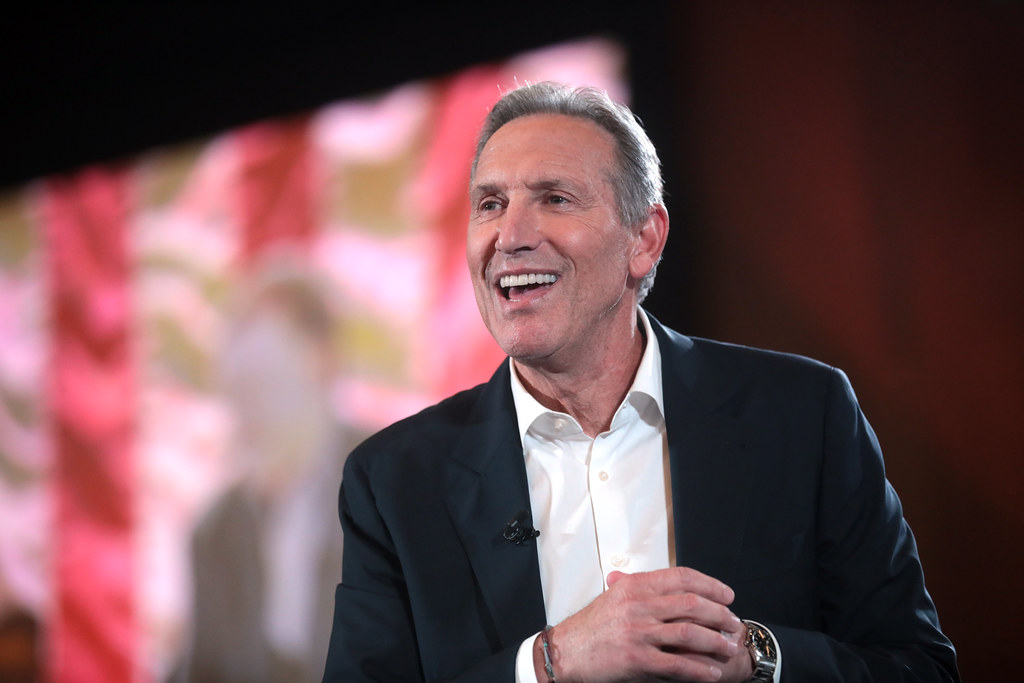Starbucks has quietly resumed its stock buyback program, less than a year after CEO Howard Schultz announced their suspension in a bid to quell the union organizing sweeping the company.
According to company filings reviewed by More Perfect Union, the first fiscal quarter of 2023 the company repurchased 1.9 million shares of its common stock, valued altogether at $191.4 million. Starbucks forecasted that it would “return $20 billion to shareholders by the end of fiscal 2025” between regular buybacks and dividends.
Initial notice of the reversion was tucked away on page 71 of the company’s annual report, released on January 27th; the initial set of buybacks were listed beneath the main financials in the quarterly report.
The buried about-face on buybacks stands in stark contrast with the flourish and news coverage that accompanied Schultz’s announcement of the suspension upon his return to the company in April 2022. In a publicly released memo to Starbucks employees, the billionaire promised that spending less on enriching major shareholders every quarter would allow the company to “invest more profit into our people and our stores.”
At that point, Starbucks had already begun to fire workers that had been leading the unionization effort at stores across the country. When that failed to slow Starbucks Workers United’s momentum, Schultz, a longtime opponent of organized labor, returned for the third time as CEO to lead a more forceful — and largely illegal — response to the union drive.
The aggressive union-busting strategy has included a mix of firings, mass store shutdowns, and improved compensation to non-unionized stores, all of which have been deemed illegal by the National Labor Relations Board. Starbucks has now fired well over 200 union supporters and forced many more out of their jobs by cutting hours and closing stores. More than 250 stores have voted to unionize.
Though it claims to respect the organizing process, Starbucks warned investors in its annual report that continued unionization would have negative repercussions.
“If a significant portion of our employees were to become unionized, our labor costs could increase and our business could be negatively affected by other requirements and expectations that could increase our costs, change our employee culture, decrease our flexibility and disrupt our business,” the company cautioned. “Additionally, our response to any union organizing efforts could negatively impact how our brand is perceived and have adverse effects on our business, including on our financial results.”
On Wednesday, a coalition of investors led by Trillium ESG Global Equity Fund and the New York Comptroller’s office sent a letter urging the Starbucks Board of Directors to hold a vote on commissioning a third-party assessment of the company’s response to the organizing drive and its treatment of unionized workers.
“Proponents are concerned that Starbucks reported conduct – and its apparent misalignment with its public commitments to freedom of association and collective bargaining rights – may create reputational, legal and operational risks for the company and may impact long-term value,” the coalition cautioned.
There’s ample reason for concern. For more than a year, Starbucks has refused to participate in collective bargaining with unionized stores. After it was forced into offering bargaining dates last September, the company’s lawyers from union-busting firm Littler Mendelson spent the fall regularly filibustering and walking out of negotiations over the union’s desire to allow members to observe via teleconference — the same technology that Starbucks will be using in lieu of an in-person event for its annual investor day in March.



